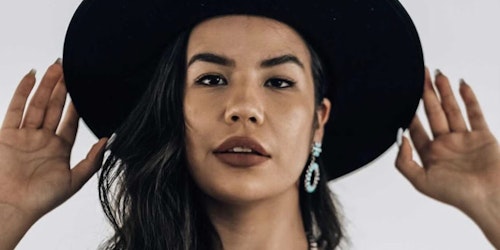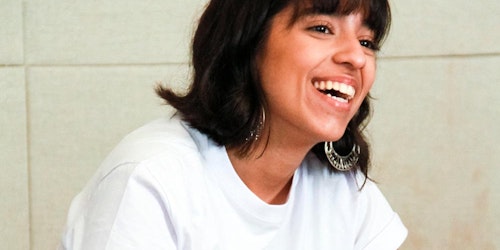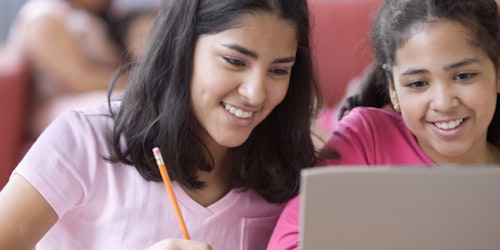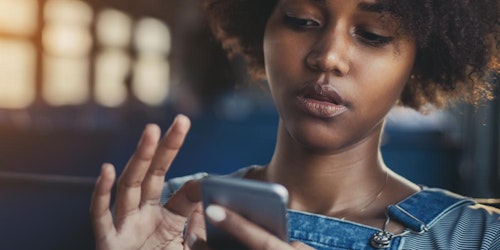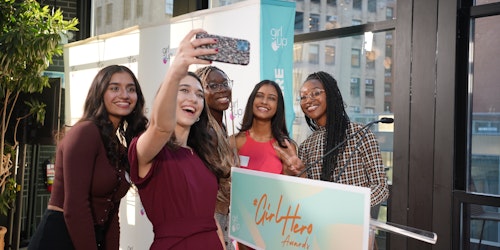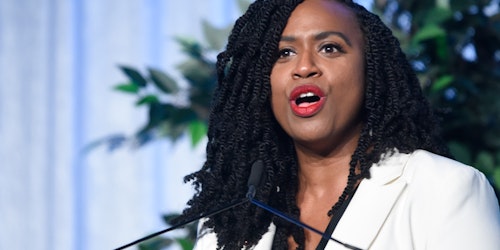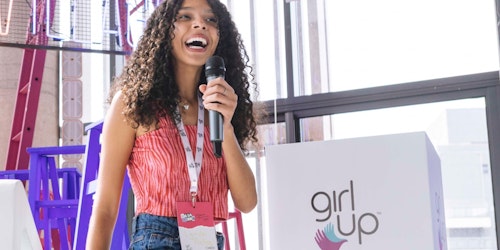Estimated reading time: 8 minutes
Every year, on May 28, people worldwide come together to commemorate Menstrual Hygiene Day—a powerful occasion dedicated to shattering the silence and stigma surrounding menstruation. This day serves as a platform to advocate for access to reliable information, safe sanitation facilities, and menstrual products for every individual who menstruates.
In alignment with this mission, Girl Up India had the privilege of engaging in an insightful conversation with Melissa Berton, the Executive Director and Co-founder of The Pad Project, to explore the connections between menstrual equity, gender justice, sustainability, and more.
Could you tell us a little bit more about the vision and mission driving The Pad Project? How did you first get started?
The Pad Project began in a high school classroom. While reading classical literature, young women in my class were confronted with all of these patriarchal worlds in which women weren’t the decision-makers. Inspired by their frustration with the lack of women’s agency in their lives, they decided to journey to the United Nations Commission on the Status of Women in 2013. It was there that we learned that many girls around the world drop out of school at the onset of their periods. This happens due to various factors, such as limited access to safe and hygienic menstrual products, inadequate means to manage their periods, and the heightened risks of human trafficking or child marriage. And, by the way, this happens everywhere–including right where I live in the United States, where a significant portion of the population cannot afford the means to take care of their menstruation. I think that’s when the lights went off for us. What began as a documentary film project highlighting a single village has expanded to an organization with global reach. In 2019, that documentary film, Period. End of Sentence., won the Academy Award for Best Documentary Short, and since then, The Pad Project has continued to grow.
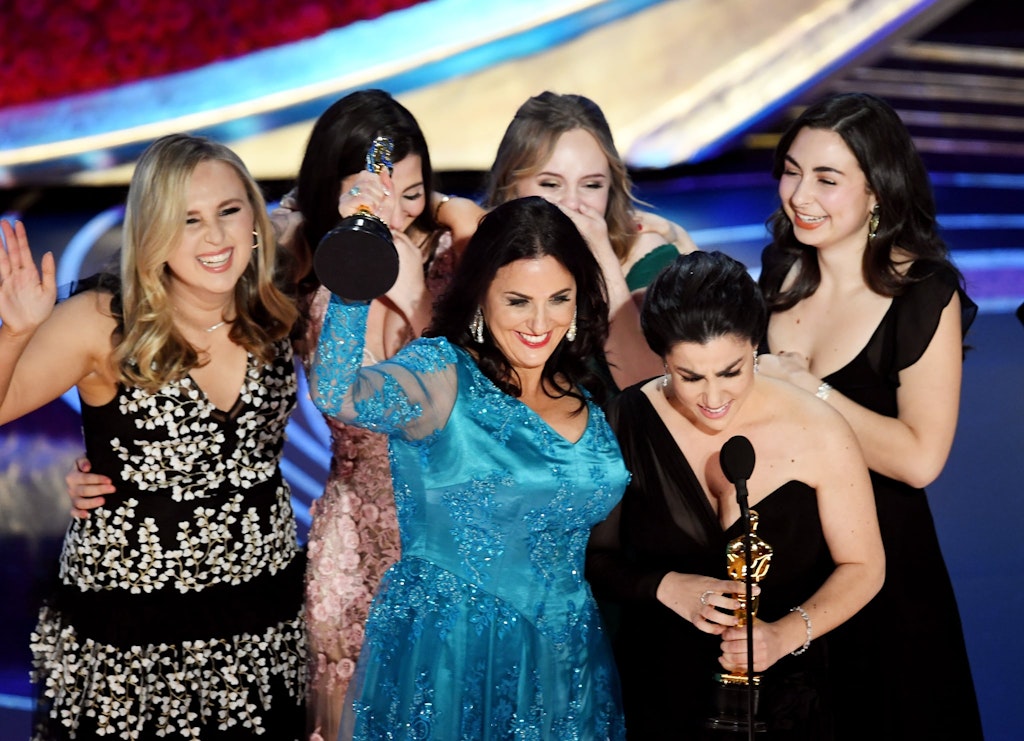
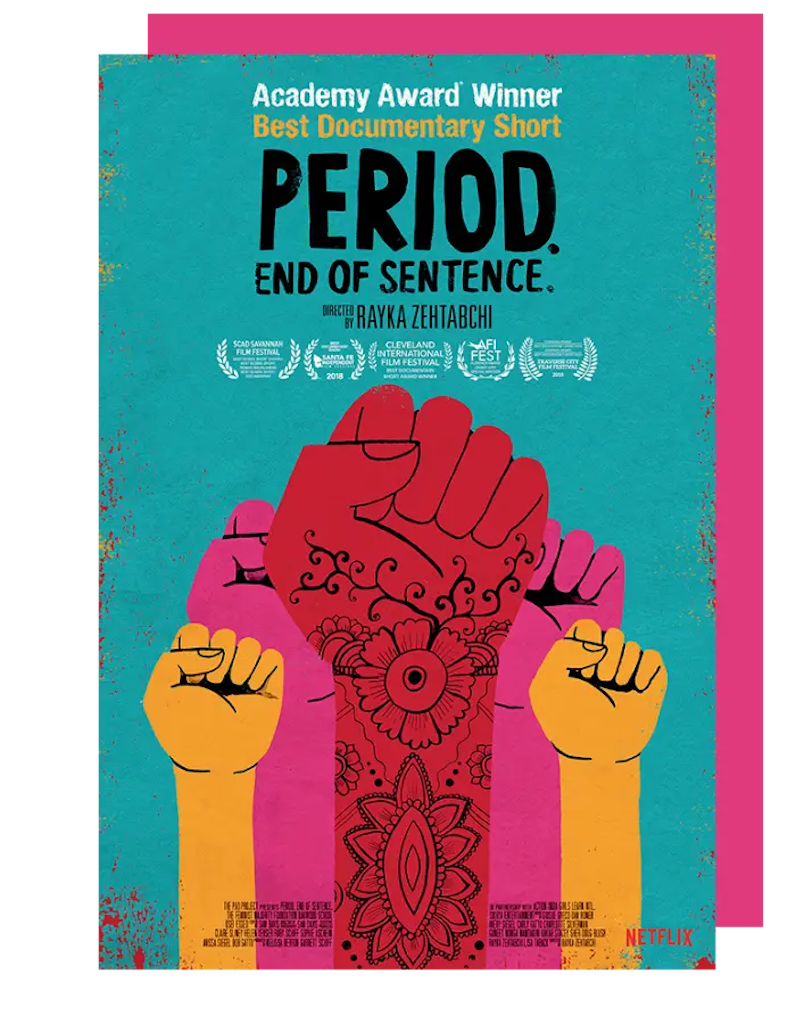
I remember watching Period. End of Sentence. and being moved by how beautifully it depicts an incredible story of women fighting for menstrual equity as well as their livelihood and economic independence. Could you tell us more about the vision that sits at the heart of this documentary and how it all first came about?
Maybe because our school is in Hollywood, California, we grew up with movies and understood the impact of film in shifting perspectives and raising awareness. The true power to create change lies in human stories that resonate with everyone. We can present statistics, like the number of people unable to attend school due to lack of access to menstrual products, but it is through personal and human narratives that hearts and minds are truly moved.
We realized the need to create a film, a story. Unsure of where to begin, we started asking questions and sought out individuals who could offer support. This endeavor turned into a seven-year journey of connecting with the right people, galvanizing interest, and building excitement. Ultimately, in 2019, it culminated in an unexpected and thrilling Oscar win for Period. End of Sentence. Initially, we had intended for the film to accompany the Girls Learn International curricula. However, the film unexpectedly gained tremendous traction on the film festival circuit. It caught me and the students by surprise. But, after reflecting on my decade-long involvement in this cause, I now realize that it was only natural for this film to spark interest. After all, 800 million individuals are menstruating worldwide at any given time, so it is a crucial issue deserving of our attention.
800 million individuals are menstruating worldwide at any given time, so it is a crucial issue deserving of our attention.
Not all women menstruate, and not all menstruators are women. How can we ensure that our advocacy and action is supporting all menstruators and that the fight for menstrual equity is inclusive of those of us who don’t fit traditional binary scripts of gender?
It is thrilling to see that the notion of gender not being binary is gaining prominence. There are trans people who are having periods. There are people who identify as women and for health or other reasons aren’t getting their period. Certainly, women after their menopause aren’t getting periods. So there are all kinds of reasons that not all women menstruate, and not all menstruators are women. And we want to embrace that in the period space and at The Pad Project, particularly in our language. However, at the same time, there’s pushback everywhere and whatever phrase we use seems to be fraught, so I don’t feel like we have a good answer. I think our primary goal should be to strive to do our best to be inclusive in our actions. This topic is exceedingly complex, but it is an ongoing discussion that is worth having.
Menstrual Health constitutes more than just the availability of menstrual products and the absence of disease or infirmity, in relation to the menstrual cycle. How does The Pad Project incorporate a holistic approach to menstrual health, encompassing physical, mental, and social well-being?
As we embarked on the production of the documentary film, we discovered that access to pads through Arunachalam Muruganantham’s pad-making machine did not encompass the entirety of the situation. Once the machine had been present in the village for some time, we observed a positive outcome that we had not anticipated: Women were being employed, earning money, and gaining more influence in decision-making within their households.
The machine was initially introduced to the community as a Huggies diaper machine, as depicted in the film. However, it didn’t take long for people to discern its true purpose. Once they understood its function, they had to familiarize themselves with the concept of menstruation. They needed to comprehend why pads were necessary, why they needed to be sanitary, the importance of avoiding infections, the associated costs, and the frequency and quantity of pads required. Many men, as well as women, were unaware of essential information about menstruation that we should all possess.
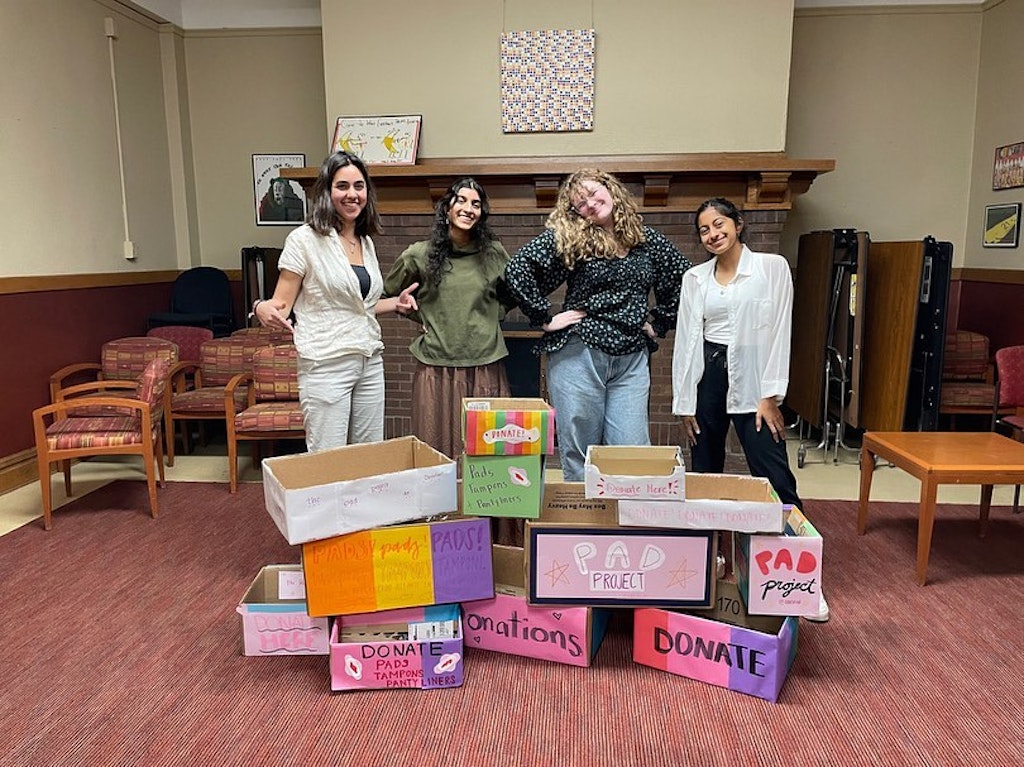
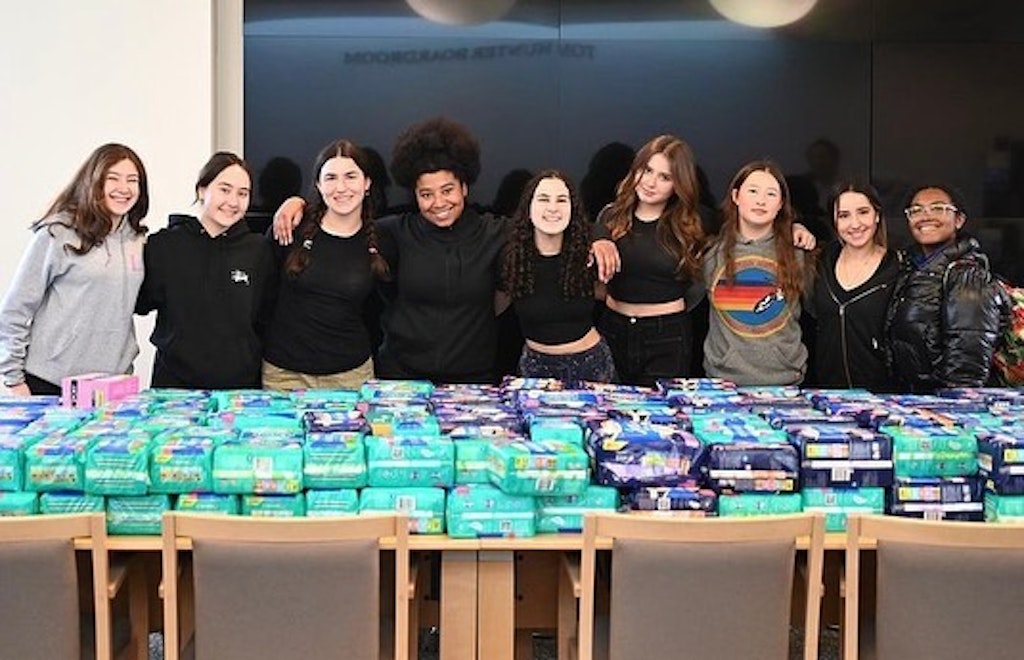
My priority has always been education. Understanding the health aspects and acknowledging individual experiences is crucial because not all menstrual cycles are identical, and each person’s experience differs. The cultural shame surrounding menstruation is prevalent in nearly every community, perpetuating the misguided belief that women are somehow unclean or inferior. We need to strip these myths to foster a new and improved perspective.
The cultural shame surrounding menstruation is prevalent in nearly every community, perpetuating the misguided belief that women are somehow unclean or inferior. We need to strip these myths to foster a new and improved perspective.
As we combat period poverty’s consequences, we are simultaneously grappling with one of the most pressing crises of our times, i.e., climate change. How can sustainability be integrated into conversations and actions around menstrual equity and Sexual Reproductive Health, Rights and Justice (SRHRJ)?
There are brilliant products out there that address sustainability. I also think we have to recognize that no one solution fits all, or one product’s not going to be a fit for everyone. For example, menstrual cups are expensive at the outset but reusable, safe, and sustainable. However, not every community around the globe is going to be culturally comfortable with them, not everyone can afford the upfront cost or have the resources to clean them. Similarly, washable pads are sustainable, but again, you need the right climate and a good place to dry them. People are not always in communities where they can locally source fully biodegradable disposable pads or produce them.
So, yes, let’s work toward sustainability, that’s the gold star. At the same time, let’s not put the onus for climate change and sustainability on young girls and women. Why is the onus for climate change on the people who are most at risk? I know there is motivation to be sustainable and I feel like as we get there, let’s just make sure that everybody can go to school or work in dignity and comfort without shame.
Your work and activism have pushed the envelope for menstrual equity and gender justice in several ways. What advice do you have for young activists in the Girl Up community who are advocating for gender equality?
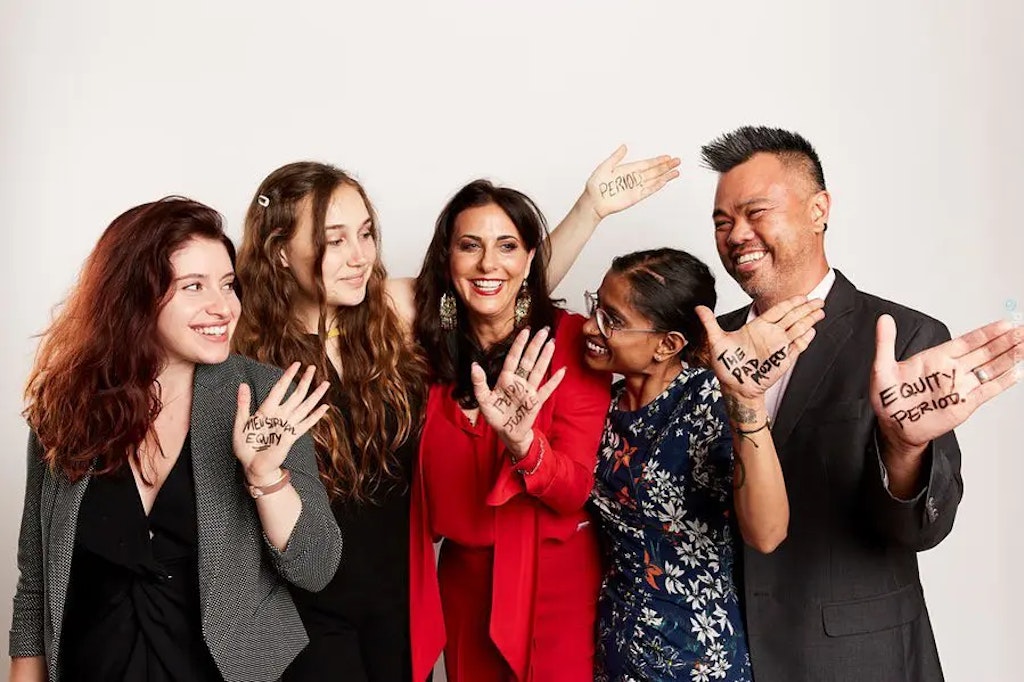
You’re right in your heart, so keep going. Don’t give up. Ignore the naysayers. Ignore the people who say you can’t do it. Trust your gut and your heart. And if you know that what you’re fighting for is right, the right people who care are going to aggregate around you. My most important advice is this: You don’t have to know it all. There will be times when admitting that you don’t know and seeking help will be essential. In those times, trust that support will come from various individuals who will contribute a fresh perspective to your understanding and knowledge. It takes time, patience, and support to make a difference. So, embrace uncertainty and be confident even if you might not have all the answers.
This interview has been edited for length and clarity.
Follow Girl Up India for more conversations on global feminist issues with the world’s most influential changemakers as a part of our ongoing series “Feminists Across Borders” on Instagram.


